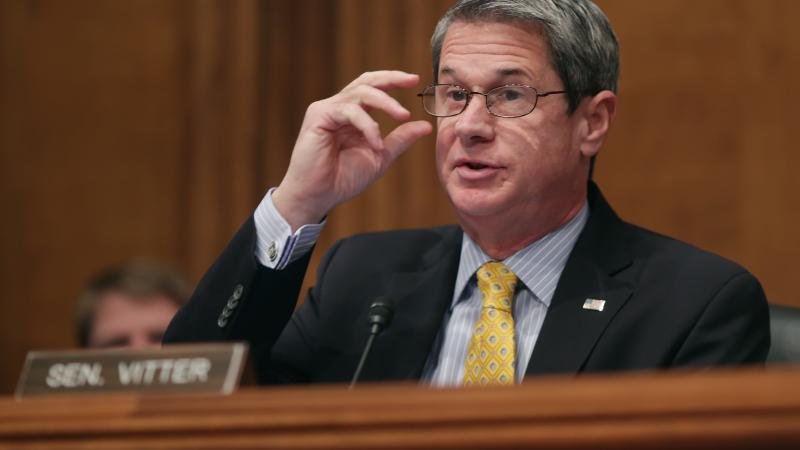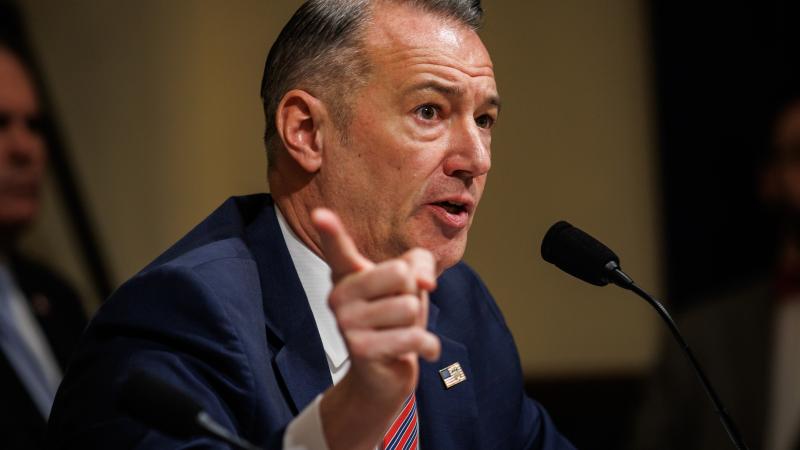Kari Lake’s attorney: Evidence of rushed ballot verification warrants overturning 2022 election
Lake fell about 17,000 votes short in the official count for the 2022 Arizona gubernatorial election.
The trial brought by Kari Lake over questionable ballot counting and verification in her unsuccessful 2022 Arizona gubernatorial campaign concluded Friday with her lead attorney saying audit data on the processes shows “this election should be set aside.”
The trial lasted three days, with closing arguments on both sides focusing on whether there was mathematical evidence proving that Lake had actually won the election.
Lake fell about 17,000 votes short in the official count in her race against then-Secretary of State Hobbs.
She is suing Hobbs, the current Democratic governor, in addition to current Secretary of State Adrian Fontes (D) and Maricopa County election officials, requesting last year's election results be invalidated or that she be declared the winner.
In Lake attorney Kurt Olsen's closing arguments he referenced data from the plaintiff’s expert witness, Erich Speckin, who has 30 years of experience analyzing signatures to determine authorship.
Olsen said that based on the county data that Speckin analyzed, "approximately 274,000 ballots out of 1.3 million cast were compared and signature verified, purportedly, in less than three seconds a ballot. Seventy-thousand in less than two seconds a ballot. That's not signature comparison” as defined by Arizona statute.
Based on those numbers, “This election should be set aside,” he said.
Maricopa Attorney Thomas Liddy in his closing arguments challenged Olsen's conclusion based on the calculations.
“There’s no competent, mathematical calculation whatsoever to conclude that a sufficient number – even one ballot – was improperly counted, let alone that there’s a sufficient number of votes improperly counted so as to affect the election’s outcome were even rendered uncertain," he said.
He concluded, “Lake has proven that our election process in Arizona is neither a joke nor a fraud. It works, it works well, and Arizonans can vote and be confident their vote will be counted. I ask this court to again reconfirm Miss Lake’s – Miss Hobbs’ election as governor.”
Lake’s team called six witnesses to the stand, including county Elections Director Rey Valenzuela, before he testified on the defendants’ behalf on Thursday. The defense attorney's only witness was Valenzuela, who is also one of the defendants.
In Maricopa, the state's largest and most populous county, signature reviewers examine signatures on early vote ballot affidavit envelopes and compare them to signatures for the corresponding voters on the voter registration database to ensure that the registered voter cast the ballot.
Maricopa receives electronic images of ballot envelopes with the signatures from Runbeck Election Services, which signature reviewers then compare to the voter-registration file.
The file has a combination of voter registration forms or ballot envelopes from prior elections, according to testimony from a county signature reviewer on Wednesday.
On Thursday, Speckin testified based upon his examination of data provided from the county about how quickly it appeared that signature reviewers made determinations regarding whether signatures were consistent.
Regarding the speed at which signatures appeared to be reviewed, Speckin said, “There were about 70,000 instances … that were lightning quick.”
He added that there were seven users, or signature reviewers, who "had over 1,000 instances" of reviewing signatures in less than two seconds that “had 100%” approval rates, meaning that the signatures matched.
When asked by Olsen whether comparing signatures in less than three seconds is physically possible, Speckin replied, "I don't believe it can be done."
On Wednesday, Valenzuela testified that county election officials can verify signatures in their offices without observers present, though observers are allowed to be in the general areas where signature reviewers examine signatures at the Maricopa County Tabulation and Election Center.
Also on Wednesday, Jacqueline Onigkeit, who was a signature reviewer in the 2022 elections, testified that signature reviewers were told to leave before the end of the last day when there were still ballots that hadn’t been reviewed. There were 1.3 million mail-in ballots cast in the 2022 general election in Maricopa.
She was involved in ballot curing, which means contacting voters whose signatures had been rejected to ensure that the voter cast the ballot.
Onigkeit said that ballot curers were told to leave early on the last day of curing when there were still about 6,00 to 7,000 ballots left to be cured.
The judge in the trial previously dismissed Lake's case in December. However, earlier this month, the Arizona Supreme Court ordered court proceedings to take place "forthwith" regarding Lake's claim the county violated its signature verification practices in last year's general election. The court granted one sanction against her legal team but denied the attorneys' fees that defendants had requested.
















